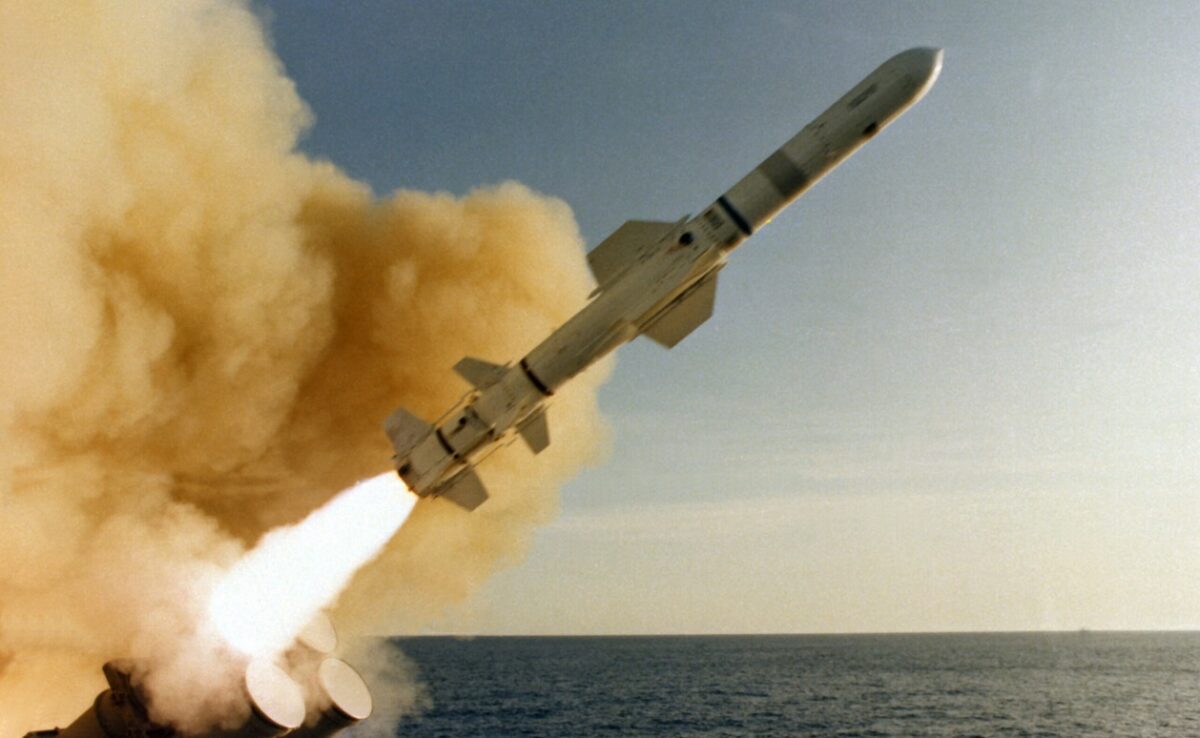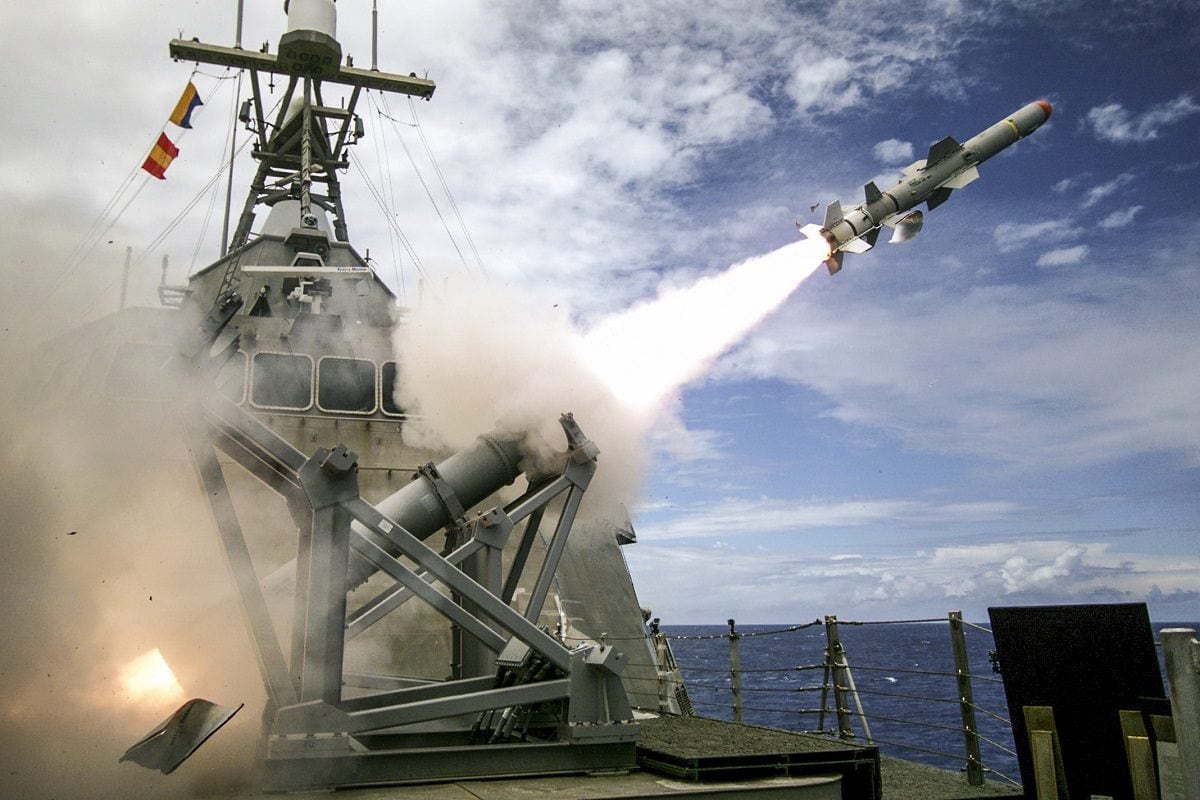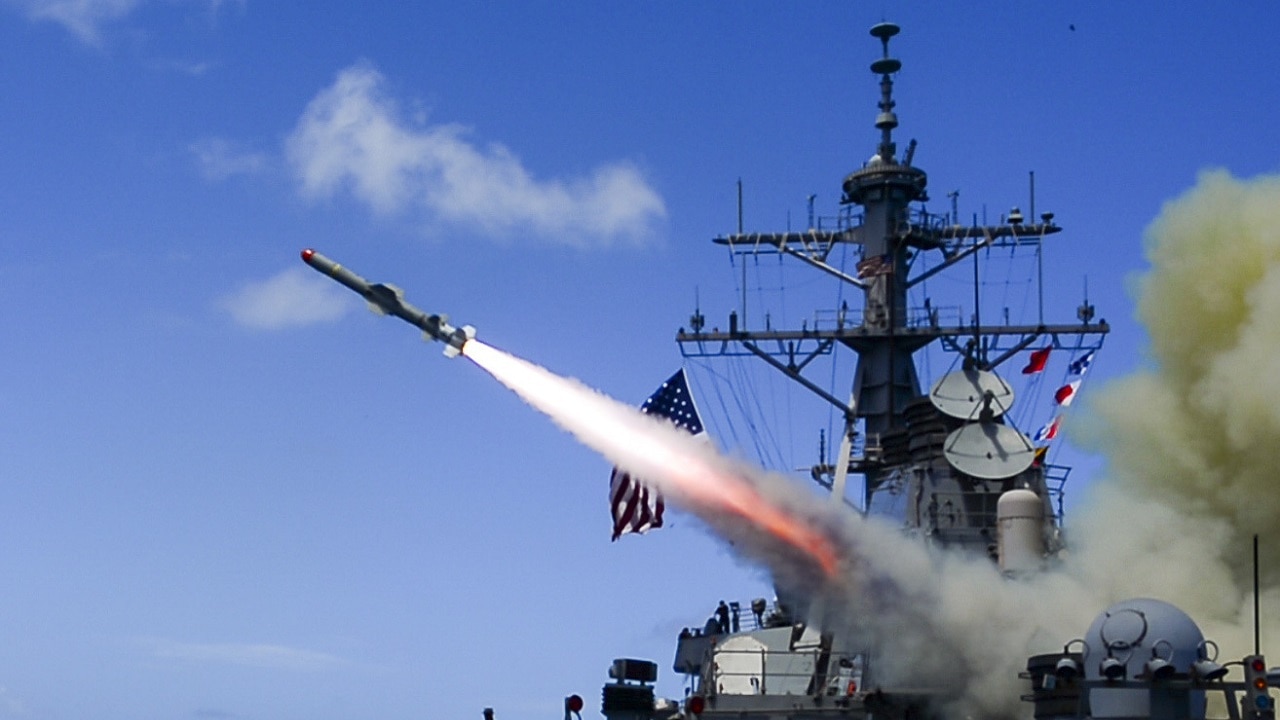NATO Considers Arming Ukraine with Anti-Ship Missiles – On the same day that Ukrainian soldiers successfully destroyed a Russian warship in the occupied Berdyansk port, NATO allies announced plans to potentially arm Ukraine with more anti-ship weapons.
Speaking to leaders and representatives of other NATO countries at a meeting in Brussels today, U.S. President Joe Biden revealed that he has begun exploring how to equip Ukraine with more anti-ship missiles.
“We have started consulting with allies on providing anti-ship missiles to Ukraine,” a senior official from the Biden administration also told reporters today.
“There may be some technical challenges with making that happen,” the Biden White House source continued, adding that consultations are ongoing.
Why Anti-Ship Weapons Are Necessary
The destruction of the Russian warship in the Black Sea is significant, as it shows Ukraine’s military – though smaller than the Russian military and tired after four weeks of bombardment, is capable of destroying ships sent by Russia in recent weeks to dock in southern port cities in Ukraine. Russians have control over most of Ukraine’s eastern coastline, providing easy access for Russian ships traveling via the Black Sea to Ukraine.
Should additional anti-ship weapons–like the older but modernized Harpoon system–be provided by the West, it will give Ukraine a fighting chance to prevent further Russian military vehicles, tanks, and weapons from entering the country via sea at a time when Russia is reportedly struggling to resupply its land-based troops.
Since early March, Russian troops have focused heavily on taking control of the Black Sea coast. Not only does controlling the eastern Black Sea coast make it easier to deliver supplies to Ukraine via ship, but it also creates a land corridor between Crimea – the Ukrainian territory annexed by Russia in 2014 – and the eastern regions of Luhansk and Donetsk, which Russian President Vladimir Putin recognized as independent in a presidential decree in February.
Ukrainian President Volodymyr Zelenskyy also made a direct plea to NATO forces last night, specifically asking for more weapons, tanks, aircraft, and anti-ship missiles.

A view of an RGM-84 surface-to-surface Harpoon missile, immediately after leaving a canister launcher aboard the cruiser USS LEAHY (CG-16), near the Pacific Missile Test Center, Calif.

160719-N-ZZ999-112
PACIFIC OCEAN (July 19, 2016) USS Coronado (LCS 4), an Independence-variant littoral combat ship, launches the first over-the-horizon missile engagement using a Harpoon Block 1C missile. Twenty-six nations, 40 ships and submarines, more than 200 aircraft and 25,000 personnel are participating in RIMPAC from June 30 to Aug. 4, in and around the Hawaiian Islands and Southern California. The world’s largest international maritime exercise, RIMPAC provides a unique training opportunity that helps participants foster and sustain the cooperative relationships that are critical to ensuring the safety of sea lanes and security on the world’s oceans. RIMPAC 2016 is the 25th exercise in the series that began in 1971. (U.S. Navy photo by Lt. Bryce Hadley/Released)
“You can give us one percent of all your aircraft. One percent of all your tanks. One percent! We can’t just buy it. Such a supply directly depends only on NATO’s decisions, on political decisions, by the way,” he said. “MLRS (multiple launch rocket systems), anti-ship weapons, means of air defense, is it possible to survive such a war without it?”
Jack Buckby is a British author, counter-extremism researcher, and journalist based in New York. Reporting on the U.K., Europe, and the U.S., he works to analyze and understand left-wing and right-wing radicalization, and reports on Western governments’ approaches to the pressing issues of today. His books and research papers explore these themes and propose pragmatic solutions to our increasingly polarized society.

